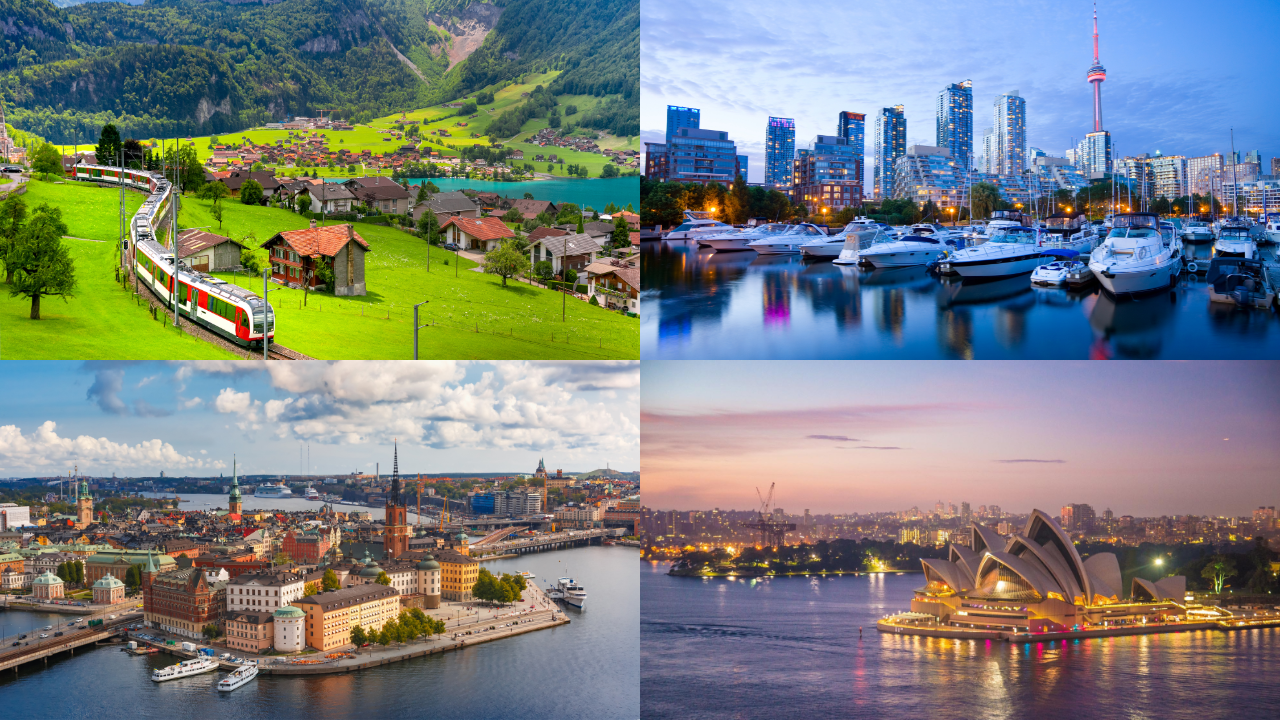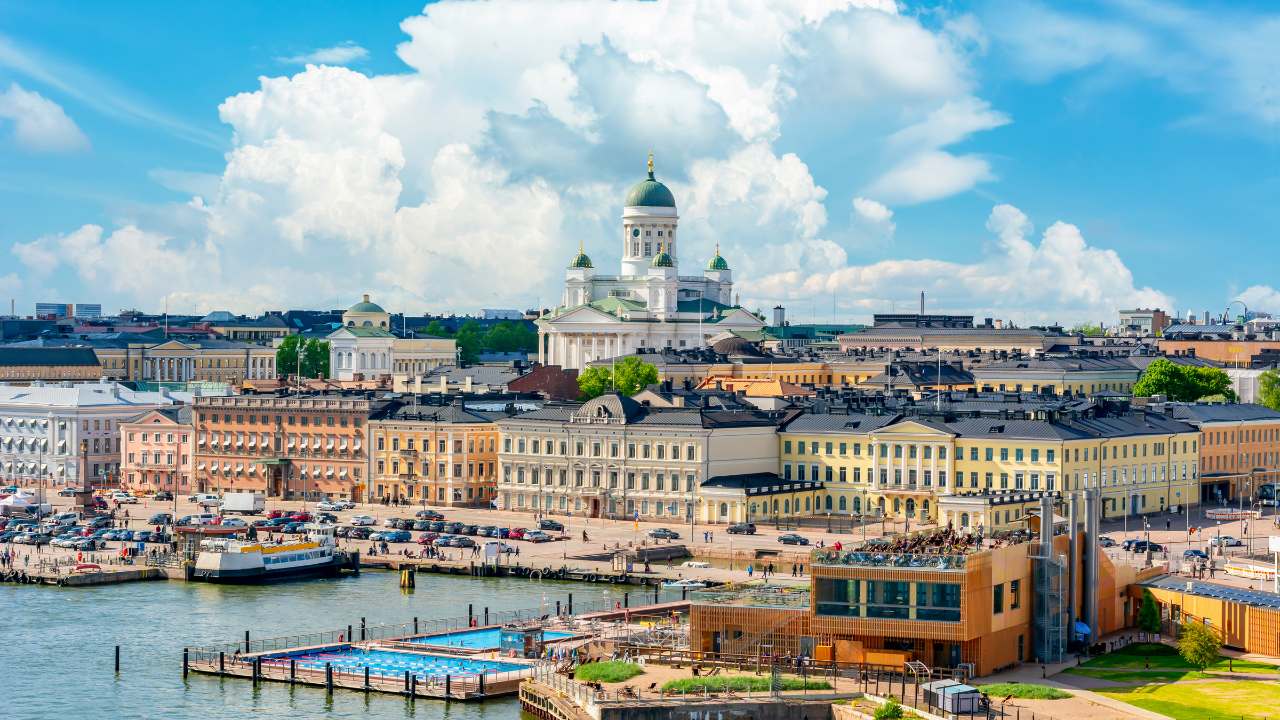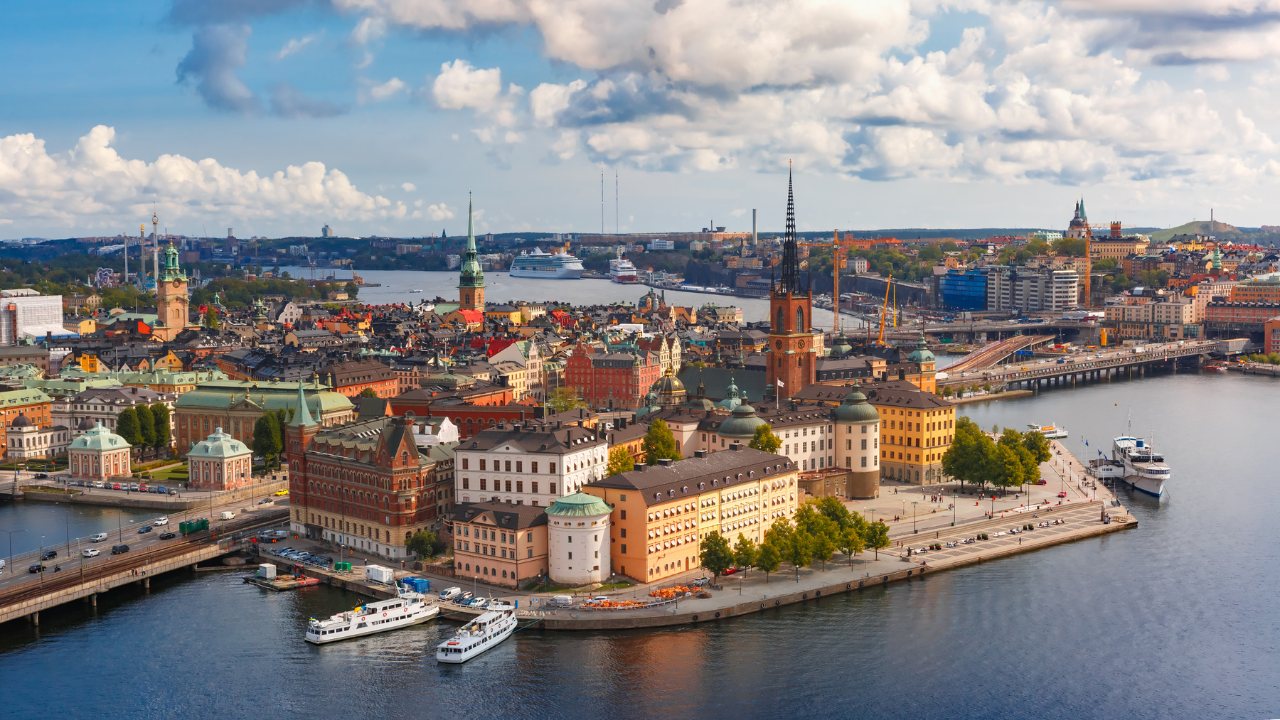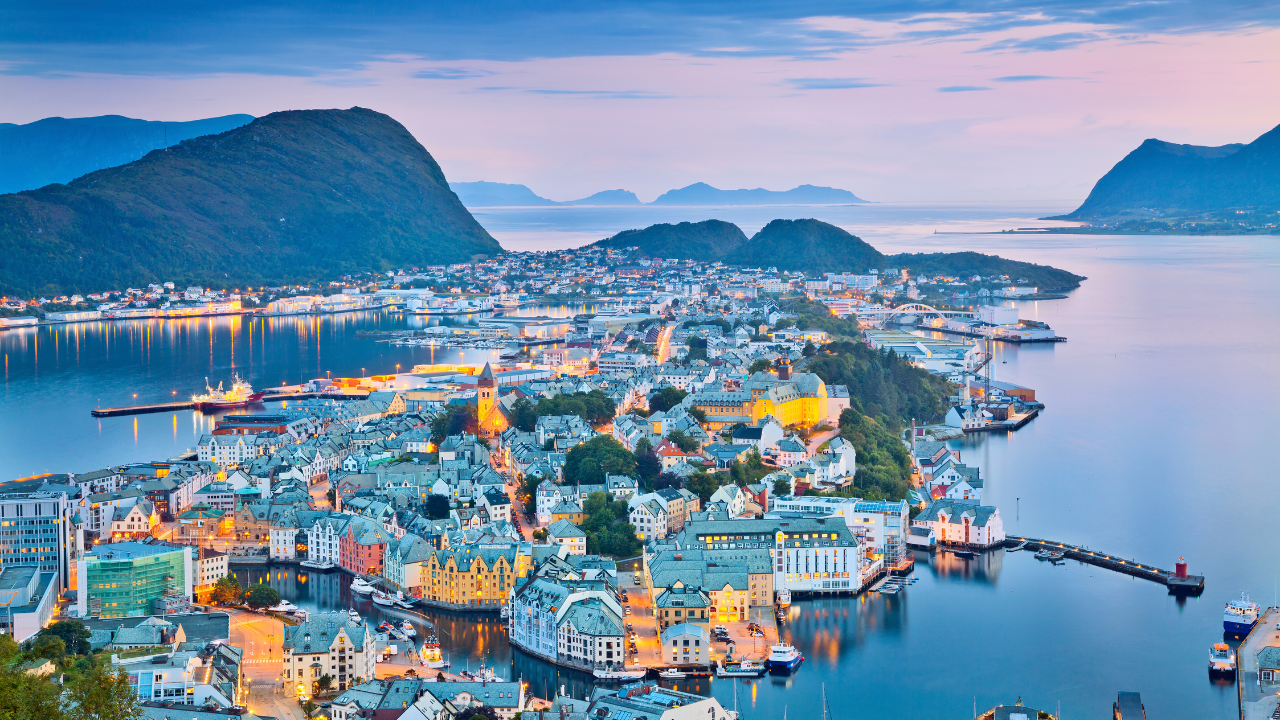
Air quality plays an important role in determining the health and well-being of a population. The Air Quality Index (AQI) is used to measure how clean or polluted the air is and the associated health effects that may be of concern to the general public. Lower AQI means better air quality, while higher AQI indicates more pollution and potential health risks. Many countries have made significant progress in improving air quality through policies, technology and environmental management. Below is the list of top 10 countries with the best air quality based on average AQI and environmental health measures:

finland
Finland stands as a global example of clean air and sustainable living due to its commitment to environmental protection and rich natural landscapes. With more than 70% of its land covered in forests, the country has excellent air quality due to its low population density and minimal industrial pollution. Stringent environmental regulations support this, enforcing sustainable practices in industries and encouraging green energy. The abundance of green spaces not only enhances air quality but also promotes biodiversity, contributing to Finland’s consistently high rankings for environmental sustainability and making it one of the world’s healthiest places to live. Is.

iceland
Iceland’s pristine air quality is a result of its unique geography, commitment to renewable energy, and low population density. With abundant geothermal resources, Iceland generates most of its energy from clean, sustainable sources, significantly reducing its dependence on fossil fuels and reducing carbon emissions. Additionally, the low level of industrial activity contributes to Iceland’s minimal air pollution, allowing both urban and rural areas to enjoy clean and fresh air. This commitment to renewable energy and preservation of natural landscapes makes Iceland a global model for sustainable, eco-friendly living.

sweden
Sweden is renowned for its exceptional environmental standards and commitment to sustainability. The Swedish government enforces strict air quality regulations and actively promotes renewable energy, with a large proportion of its energy coming from hydropower, wind and bioenergy. This focus on clean energy reduces reliance on fossil fuels and contributes to reducing emissions, supporting clean air across the country. Sweden has one of the highest per capita distributions of green spaces in the world, which not only enhances air quality but also promotes a healthy, biodiverse environment. Together, these efforts strengthen Sweden’s reputation as a global leader in environmental sustainability and air quality.

norway
Norway’s exceptional air quality is the result of its unique blend of natural resources, sustainable energy practices and strict environmental regulations. With a low population density and extensive natural landscapes, including vast forests and woodlands, Norway benefits from minimal industrial pollution. The country relies heavily on hydroelectric energy, which meets most of its energy needs and significantly reduces its dependence on fossil fuels, keeping carbon emissions low. Norway’s strong environmental policies ensure that industries operate sustainably, maintain clean air and protect the natural environment. These efforts make Norway a global model for protecting air quality and promoting environmental health.

new zealand
New Zealand is celebrated for its outstanding air quality, vast natural landscapes and commitment to renewable energy. The country’s forests, mountains and lakes not only enhance its natural beauty but also contribute to maintaining clean, fresh air. With a low population density and extensive environmental protection, New Zealand has reduced exposure to pollution and preserved its natural surroundings. Renewable energy sources, including hydroelectric and geothermal energy, further reduce dependence on fossil fuels, making New Zealand a global example of sustainable living and environmental stewardship. These combined efforts allow New Zealand to have the cleanest air in the world.

Canada
Canada is renowned for its pristine air quality, largely due to its vast forests, clean lakes and low levels of industrial pollution. The country’s natural reserves, including vast forests and protected areas, play a vital role in maintaining fresh, clean air. Due to Canada’s commitment to reducing emissions and promoting environmental sustainability, cities like Vancouver and Calgary, along with smaller cities, consistently rank high in terms of air quality. The country’s focus on renewable energy sources, especially hydropower and wind power, helps reduce dependence on fossil fuels, further improving air quality. With strong environmental policies, Canada remains a leader in efforts to protect both the air and the environment.

Australia
Australia is known for its excellent air quality, especially in areas outside major cities such as Sydney and Melbourne. The country’s strong environmental laws and commitment to reducing emissions have played a vital role in maintaining clean air. Additionally, Australia’s focus on renewable energy sources such as solar and wind power supports its efforts to reduce pollution. Cities such as Hobart and Adelaide consistently report the cleanest air in the country due to effective policies and an increased emphasis on preserving natural ecosystems. By balancing urban growth with environmental protection, Australia continues to prioritize air quality and sustainability.

Switzerland
Switzerland is renowned for its exceptional air quality, a reflection of the country’s strong commitment to environmental protection. The Swiss government implements effective policies to reduce emissions and promote clean transportation and energy use, which has significantly reduced air pollution. Additionally, Switzerland’s stunning natural landscapes, including the iconic Alps, play a vital role in maintaining clean air by acting as natural filters. The country’s strict regulations on air pollution ensure that its air remains fresh and healthy, making Switzerland a global leader in both environmental sustainability and air quality.


